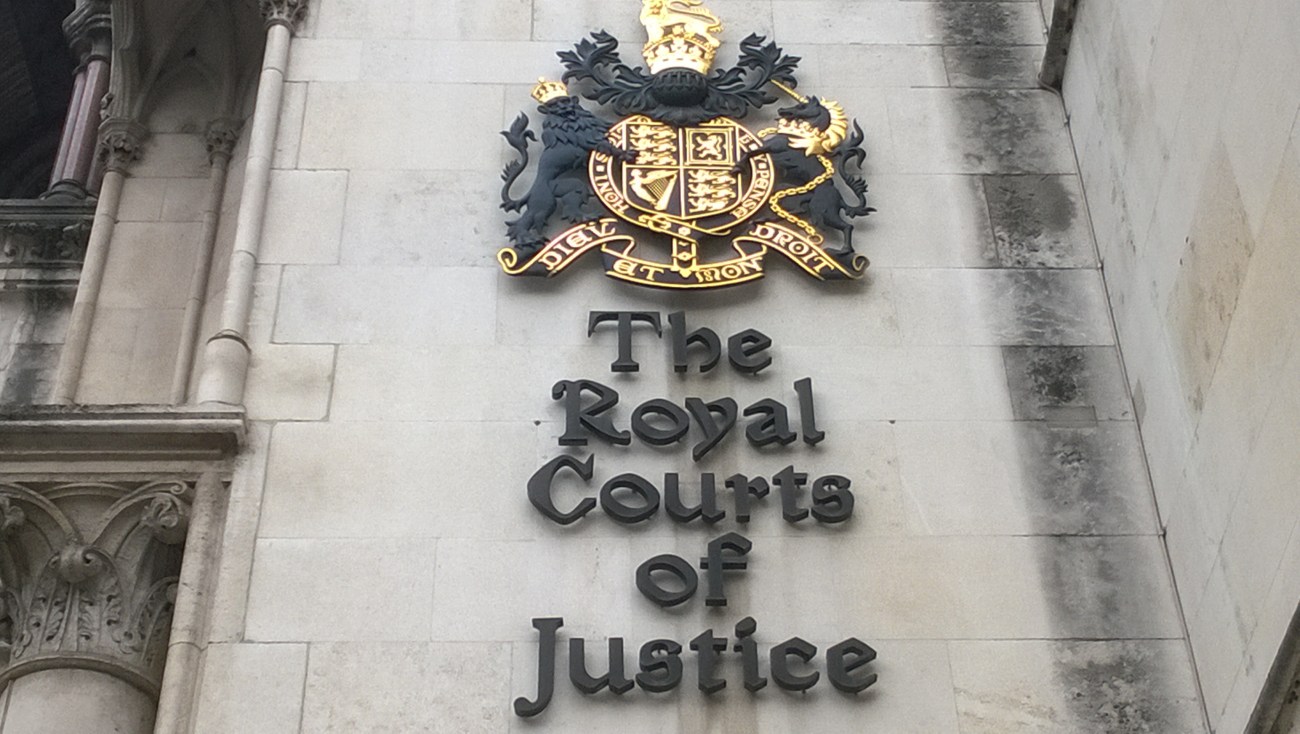Any chink in decisions about the onshore oil and gas industry will be challenged, an anti-fracking campaigner warned today after winning the right to bring a judicial review against the government.
Ben Dean, from Cheshire, got the go ahead for a High Court challenge to the decision to allow more time for shale gas drilling near his home.
The case could have implications for other oil and gas operations across England.
Mr Dean argued that the Secretary of State did not have the power to vary the terms of his local petroleum exploration and development licence (PEDL).
Lawyers for the government and the licence holder, Dart Energy (West England) Ltd said there was no case to answer.
But Mrs Justice Lang, at the Royal Courts of Justice, gave permission for Mr Dean to bring a judicial review of the decision. She also capped Mr Dean’s costs at £5,000 if he lost. The Government has 50 days in which to submit its case.
Mr Dean said:
“This industry is now under huge scrutiny and every decision made by government, planning authorities and regulators if there is a chink then it will be challenge and that is what has happened in 2016.
“It is clearly not fair that the government appears to be able to do what it wants in making decisions against community interests and without any social licence.”
Jake White, legal officer at Friends of the Earth, which has supported the case, said:
“We are delighted for Ben. We are very pleased to be acting for him and putting the legality of what the Secretary of State has been doing for years to the test.”
Contract or licence?
The case hinges on whether the Secretary of State had the power to make changes to the terms of PEDL189, the exploration licence which covers the area around Chester.
David Wolfe, QC, for Mr Dean, argued there were no powers under the Petroleum Act or regulations to vary the terms of the licence after it had been granted in 2008.
But he said the Secretary of State had twice extended the duration of the initial term, when exploration work was carried out.
The most recent time extension was in late June 2016. This gave Dart Energy another two years for exploration, even though it had not complied with the work programme set out in the licence terms. Another 13 licences were extended at the same time for similar reasons.Details
Lawyers for the government and Dart Energy argued that the licence was a contract or a contractual licence. They said the terms could be changed with an agreement between the two parties.
But Dr Wolfe said it was a statutory licence and any amendments would make it inconsistent with the EU hydrocarbon licensing directive. He said:
“The Secretary of State had no power to vary the licence that way. The decision to do so, and the resulting variation, is simply ultra vires [unlawful].”
Eric Metcalfe QC, for the Secretary of State for Business, Enterprise and Industrial Strategy, argued that the case was not covered by the European directive.
“EU law regulates the granting of licences but it does not nothing to affect the Secretary of State’s contractual powers, which we say is at issue in this case.”
He said the directive was not concerned with the internal times within a licence and in this case the total duration had not changed, only the length of the first phase.
The court also heard arguments about whether Mr Dean had submitted his claim within three month deadline required by the courts.
The Oil and Gas Authority made the variation to the licence on 28 June 2016 but did not post a summary online until 30 June.
Dr Wolfe said Mr Dean submitted his claim on 29 September, within three months of when he knew or should have known, the date of the decision.
James Maurici QC, for Dart Energy’s parent company, IGas, argued that Mr Dean missed the deadline by a day. He said the judge should not exercise her discretion and allow the judicial review to proceed because there was no adequate reason for the delay.
He also argued that permission for a judicial review should be refused because of the “prejudice and hardship” that would result to IGas and Dart Energy. He said the company had invested more than £3.7m in the licence, including £135,000 since 1 July this year.
Mrs Justice Lang said the arguments of both sides had force and the case should go to a full hearing.
Cap on costs
Mr Dean argued that his costs should be capped to £5,000 under the Aarhus Convention which allows individuals to challenge environmental decisions made by public bodies.
Both Mr Maurici and Mr Metcalfe argued that the case should not qualify because the licence did not have an impact on the environment.
But Justice Lang overruled them. She said:
“The claimant’s objective is to protect the environment by preventing the extension of drilling rights. The protection of the environment extends not only to if the licence leads to fracking but also to drilling.”
Mr Metcalfe said the Secretary of State would appeal against the judge’s ruling on the Aarhus Convention and would apply at the same time for a stay of process in the judicial review.
Categories: Legal


This is a fair decision and should rightly go to a full hearing.
If a company wants to apply for a PEDL then it has to commit to the terms of the licence. Time constraints are placed with firm work commitments. Any benefits from the development would therefore be maximised and unwanted acreage would be returned for consideration from other companies.
There is clearly a case to answer when extensions and further extensions are granted to companies who are unable to work within the imposed conditions of the licence.
Clearly an Aarhus case and capped accordingly.